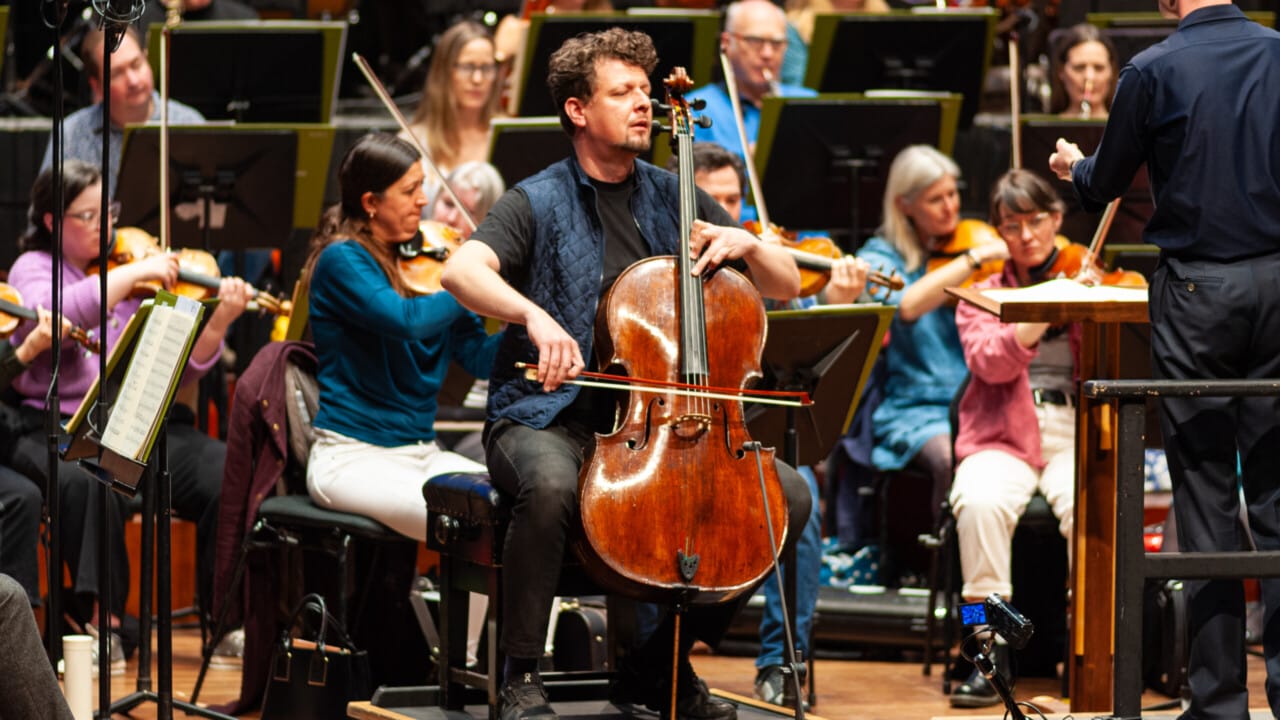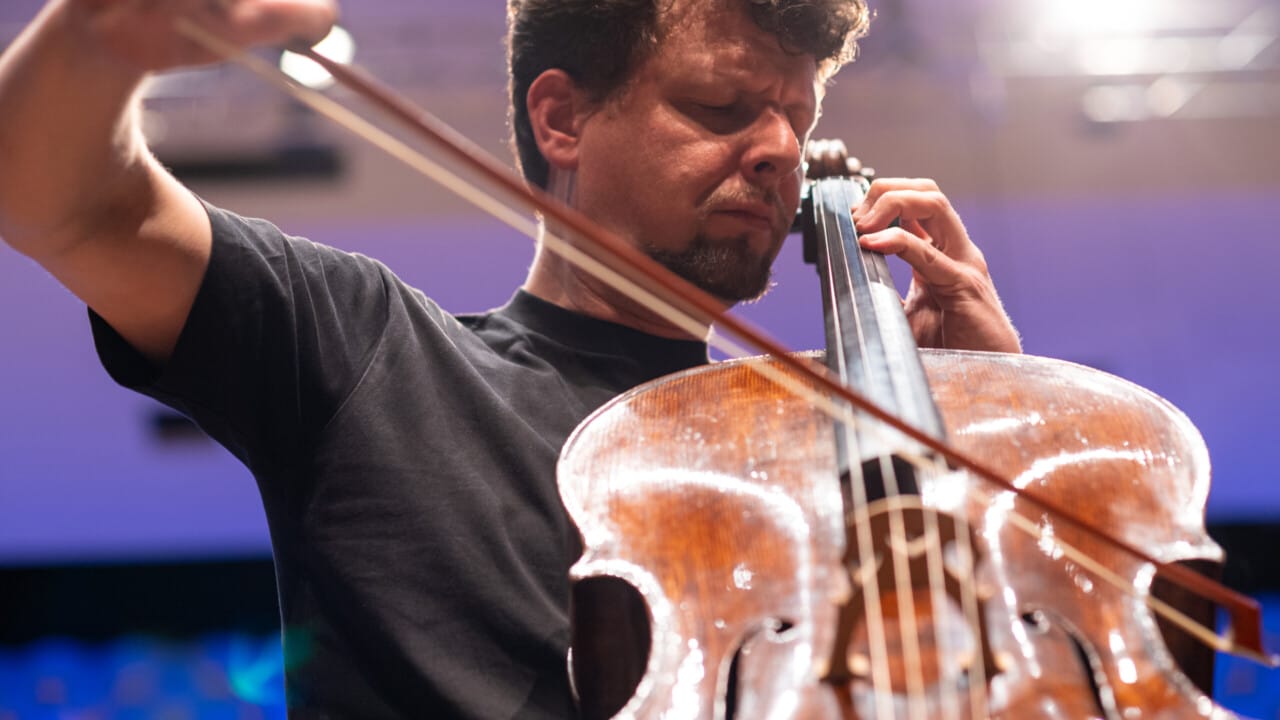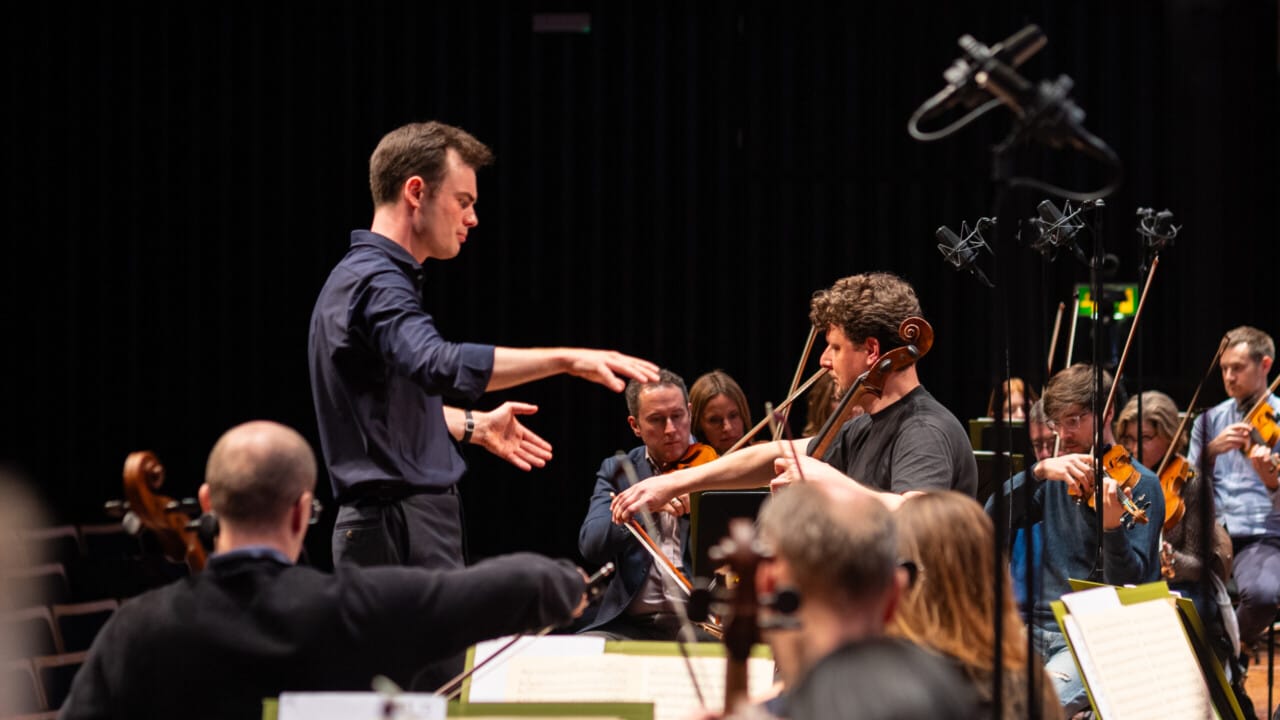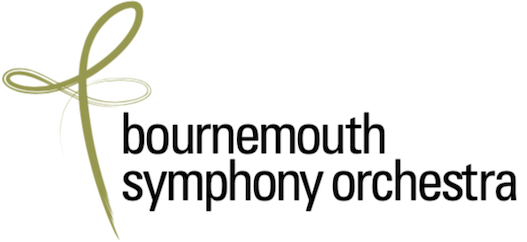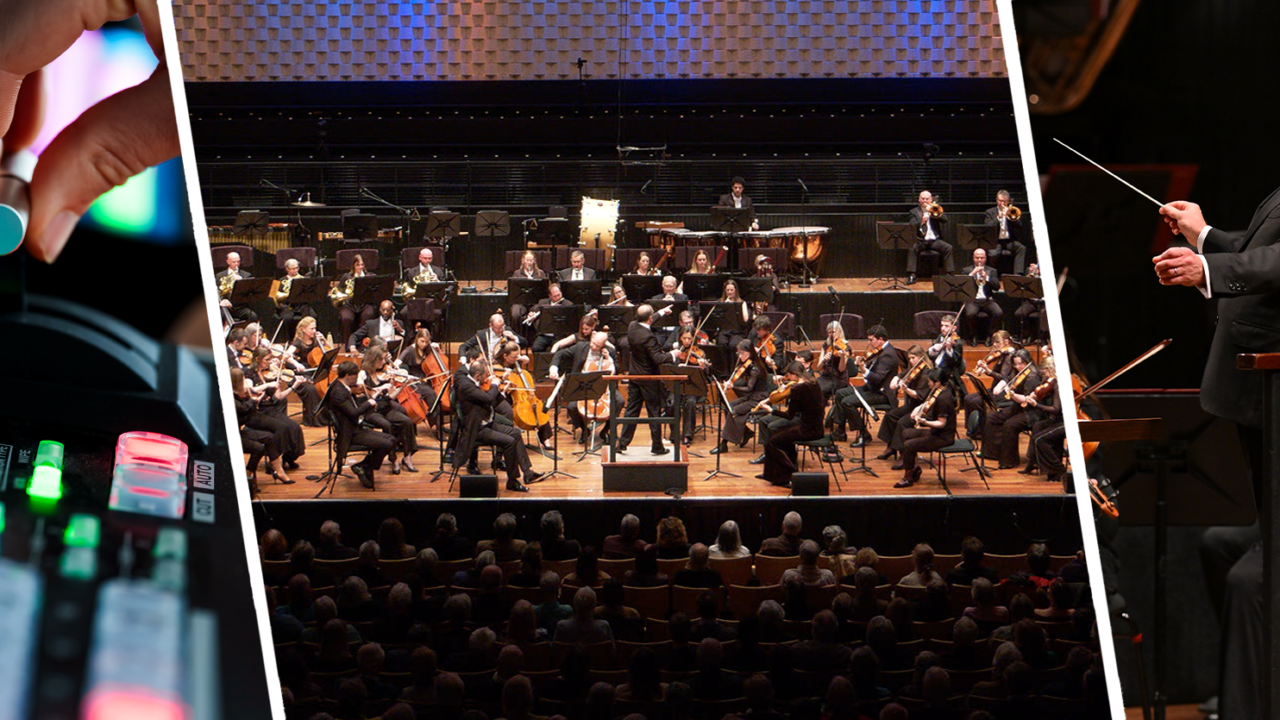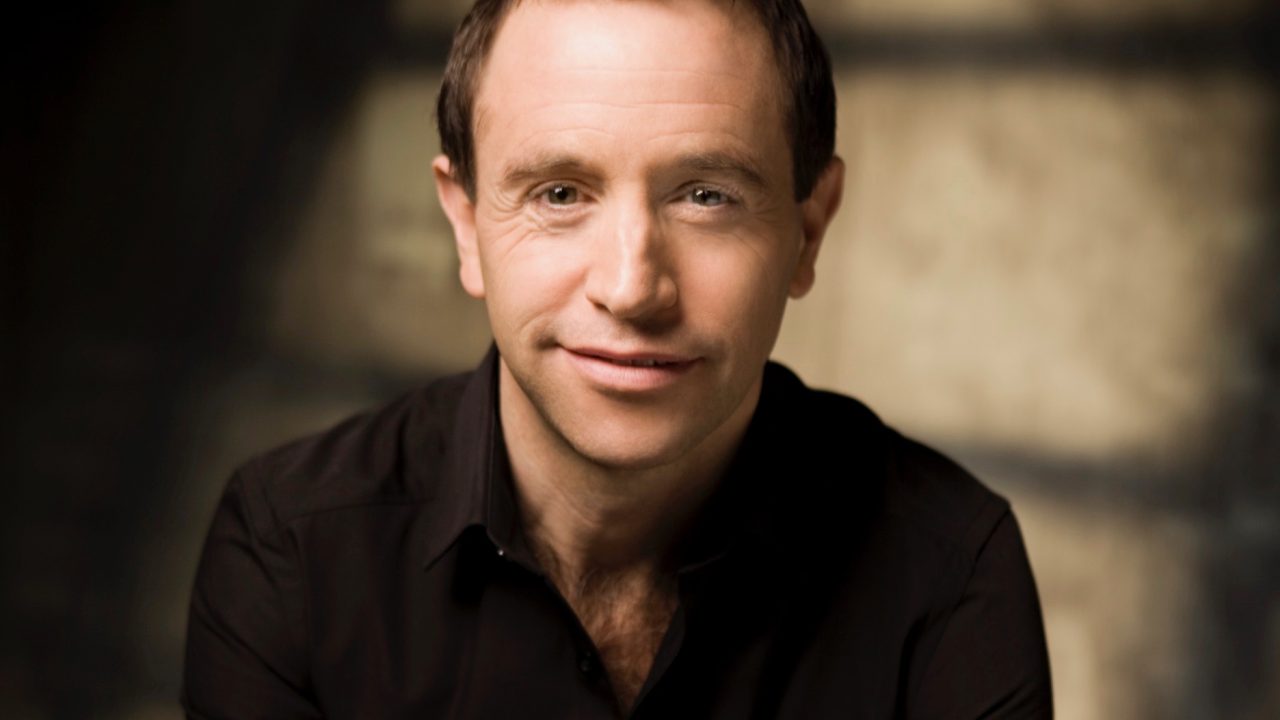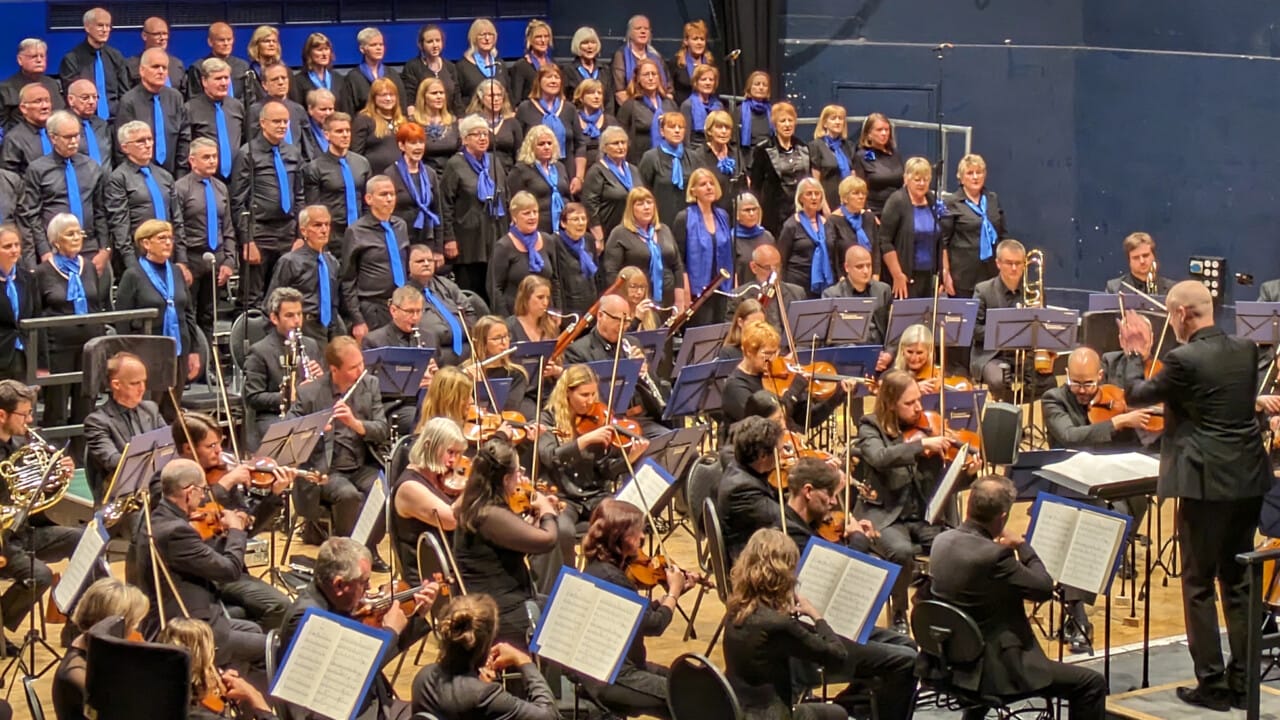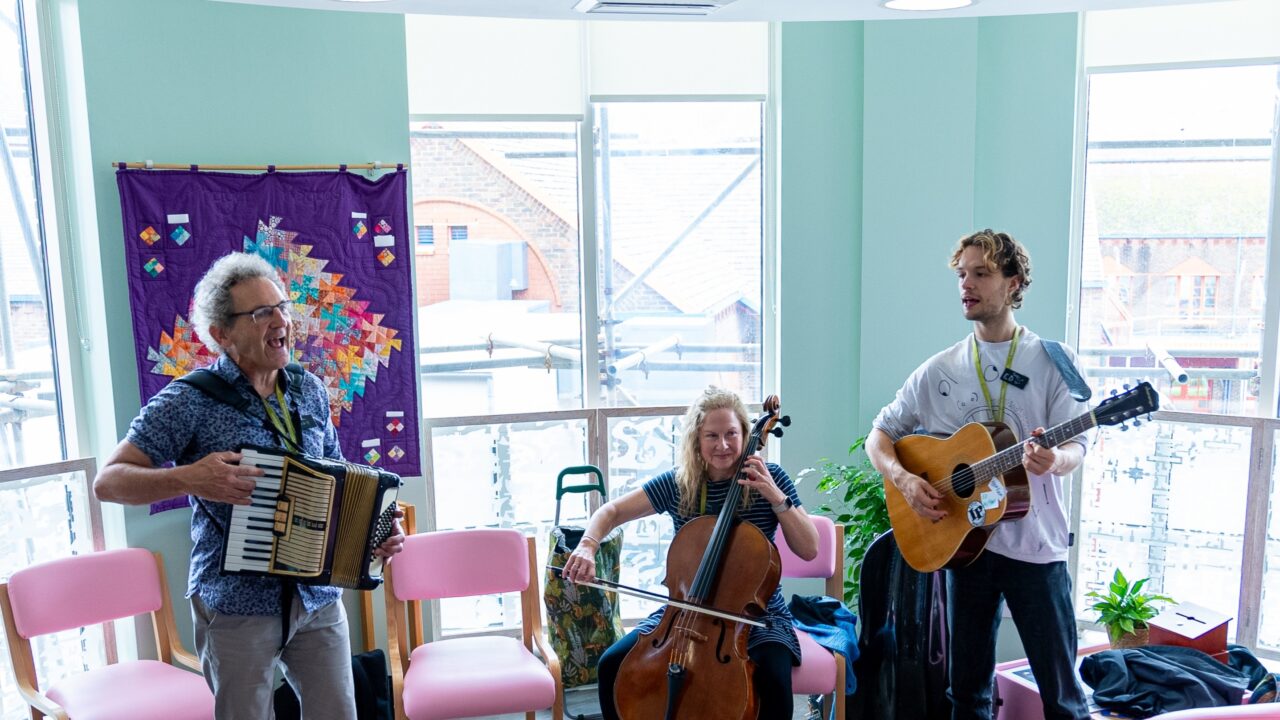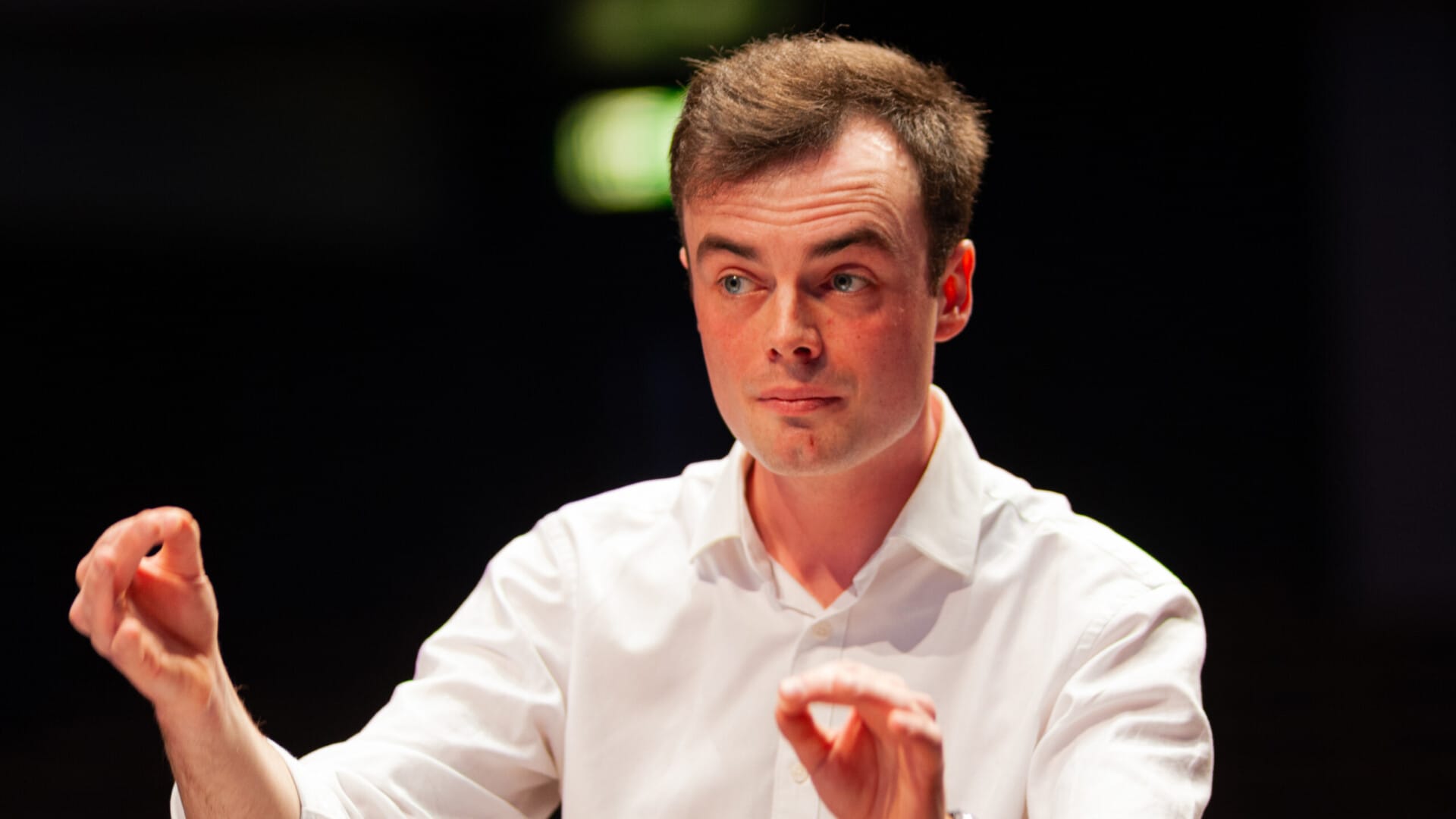An astutely inspired programme comprising Sibelius’ most organically developed and concise one movement Symphony No.7 followed by Schumann’s innovative Cello Concerto, mirrored after the interval by Charles Ives’ The Unanswered Question and Elgar’s Variations on an Original Theme, ‘Enigma’. Each pairing of works came together as a diptych with both panels reflecting the concept of enigma at a personal level, but also with compelling universal reach.
In gestation between 1914 and 1924, the 7th was Sibelius’ last completed symphony and major composition. He tussled with an 8th but was never satisfied with it. Most likely he’d already encapsulated all he wanted to say in its predecessor. As with many of Schumann’s works, his Cello Concerto is a love-letter to Clara. Forthright romantic lyricism jostles with restless mood changes and melancholy that look forward to the introspective heart of Elgar’s concerto.
Whereas Sibelius could be heard to answer the fundamental question about our place in the natural and human worlds, Ives’ even more concise The Unanswered Question, completed 1907-08, remains as per its definitively articled title. Elgar’s gallery of friends portrayed in variation form is teasingly both specific with its gallery of personalities, but musically ambiguous, especially regarding himself. Like Schumann, he often portrayed specific people and characteristics using initials of names as musical ciphers. The “Enigma” theme running through the variations was never explained, the composer citing “its ‘dark saying’ must be left unguessed”.
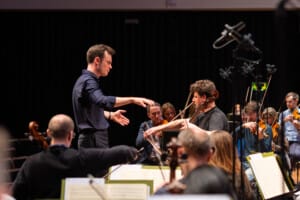
Tom Fetherstonhaugh and cellist István Várdai with the BSO
Tom Fetherstonhaugh wove a web of consummately lucid musical puzzling throughout the entire programme. The opening Sibelius conveyed the diversity of the natural world galvanised by organic creative power and constant development. Synergy with the orchestra and particularly honey-toned solo cellist István Várdai in the Schumann concerto explored a whole gamut of human emotion in the composer’s ground-breaking work with reciprocal intuition and flexibility.
After the interval, the second panel of the diptych was ushered in with no break between the cosmic mysteries of Ives and Elgar’s “Enigma”. This stroke of genius starkly contrasted the disparity of The Unanswered Question’s strange and questing ritualistic music for sectional strings, brass and woodwind with the integral unity of the full orchestral ensemble throughout the Variations inspired by special human friendships.
Such life-enhancing performances prompted thoughts that the British composer had pre-empted and answered the American’s question. Looking beyond the notes offered by all four composers, is there still time to restore equilibrium between the natural and human worlds with common friendship and respect for our environment to sustain mutual survival?
This was Tom Fetherstonhaugh’s final main season concert as BSO’s Assistant Conductor, but on this form his star will surely continue to shine ever brighter. Let’s hope he returns to Bournemouth soonest. High praise too for Richard Berry and his Digital Concerts Production Team. Their presentation values consistently raise the bar in quality live music relays, which are also much enhanced by informative commentaries, on this occasion from Catherine Bott.
Critic Ian Julier
Catch up on the Digital Concert until 25 May here
Gallery
